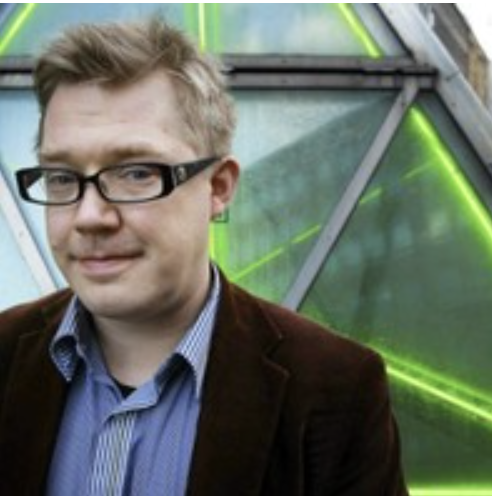Here you can find a supervisor that you can connect with, follow similar subjects, collaborate with and create your research proposal.
For a Themed Studentship your primary supervisor at Warwick must be based at either School of Creative Arts, Performance and Visual Cultures or at the Centre for Interdisciplinary Methodologies. If you are choosing to study at the University of Leeds then your primary supervisor must be based at the School of Media and Communication at Leeds.
For the Project Studentship your primary supervisor must be based at the School of Media and Communication at Leeds but jointly supervised with a supervisor at Warwick.

Dr Heidi Ashton
Associate Professor – Reader in Cultural and Creative Ecologies
Heidi is a creative industries scholar with extensive professional experience as a freelancer in the sector.
Her research and publications focus on cultural and creative ecosystems within government policy frameworks. This includes issues of creative education and skills, work in the CCIs (in the UK, Europe and USA), social security for freelancers, sustainability, inequality and creative infrastructures. She is currently Director of Education for SCAPVC and is a Global Research Fellow at the Creative Policy Evidence Centre (PEC).

Lucy Brydon
Associate Professor in the Warwick Writing Programme
Lucy Brydon is a BAFTA-nominated filmmaker and author from Edinburgh. A graduate in English and Creative Writing from Warwick, Lucy started her career in Shanghai and trained in directing at Columbia University’s MFA in Film Programme.
Her acclaimed debut novel Shanghai Passenger, loosely based on her experiences in Shanghai, was published in 2015 by Blue Mark Books.. Lucy’s notable awards include the Film and TV Charity’s John Brabourne Award, the Panavision New Filmmaker Award and New York Women in Film and Television Award.
Lucy co-supervised the inaugaral PhD in Literary Practice from the Writing Programme. Research interests include adaptation, horror, the body and body horror, autoethnography and feminist lenses.
.

Professor Chris Bilton
Professor of Creative Industries
Chris Bilton is Professor of Creative Industries at the University of Warwick. He has published extensively on cultural policy, creativity, and cultural management and his research interests include: management of creative and media businesses; alternative approaches to organisation, employment and strategy formation in the cultural sector; cultural democracy and community arts; creativity theory; and the negative consequences of ‘creativity’ for organisations and individuals. Current projects include co-authoring a book about myths of creativity on film and contributing to a co-authored book about creative work in Europe. He also co-hosts the Media Whatever podcast.

Professor Pietari Kaapa
Professor in Media and Communications
Pietari Kääpä is Professor in Media and Communications at the University of Warwick. He works in the field of environmental media studies with a focus on media management and production studies. He has published widely in the field of environmental media studies, including Transnational Ecocinemas (Intellect 2013), Ecology and Contemporary Nordic Cinemas (Bloomsbury, 2014), Environmental Management of the Media: Industry, Policy, Practice (Routledge 2018) and Film and Television Production in the Age of Climate Change (Palgrave 2022). He is PI of the AHRC Global Green Media Network, including several co-produced industry reports on sustainable film production management: www.globalgreenmedianetwork.org/reports

Dr Nerea Calvillo
Reader in Interdisciplinary Methodologies
Nerea holds a PhD and a Bachelor´s degree in Architecture (Polytechnic University of Madrid) and a Master´s degree in Advanced Architecture Design (Columbia University). She has taught design studio at the Architectural Association (UK), GSD Harvard University (US), Universidad de Alicante (ES) and the UEM (ES). Nerea’s work investigates the material, technological, political and social dimensions of environmental pollution. This has led her to analyse notions of toxicity, digital infrastructures of environmental monitoring, DIY and collaborative forms of production, smart cities, and feminist approaches to sensing the environment, among others. She is founder of the collaborative visualisation project In the Air and the architecture office C+arquitectas.

Dr Michael Pigott
Associate Professor in Film and TV
Michael’s research interests are in sound, cinema and place, experimental film and video, and the arts of projection. A significant strand of his work has focussed on the development of innovative, trans-disciplinary modes of research practice using sound, video and projection, alongside the development of non-text-based research outputs such as albums, films, video installations, exhibitions and performances. This has involved the application of humanities-based theory and method to the practical analysis of issues in the realms of urban planning, architectural space, and the environment.

Professor Sanjay Sharma
Professor Interdisciplinary Methods
Sanjay Sharma is a Professor in Warwick’s Centre for Interdisciplinary Methodologies. His research interests involve studying technologies of race and racism from critical data justice, decolonial and abolitionist perspectives. His work develops interdisciplinary methodologies to grasp how race and other intersectional exclusionary practices are emergent digital phenomena, mutating through entanglements with networked relations, algorithmic profiling, datafication, platform architectures and economies. More broadly, his work aims to situate ethno-racial difference as critical to the formation of contemporary digital culture. Current research projects are focussing on social harms produced by the deployment of AI and automated decisions making systems.

Dr David Wright
Associate Professor
David Wright is Director of Graduate Studies in the Centre for Cultural and Media Policy Studies with research interests that cut across all areas of cultural policy and the cultural/creative industries. Recent work has focussed on how digital technologies are changing the problem of culture for policymakers, the idea of regional creative economies and cultural devolution, and thinking about the relations between universities and their local cultural sectors. David has also been working on creative labour, examining how state and regional policies might support creative workers in Europe. The resulting collection, edited with colleagues from Finland, Norway and Croatia, will be published by Routledge in 2026.

Helen Wheatley
Professor of Film and Television Studies
Helen Wheatley is Professor of Film and Television Studies, co-founder of the Centre for Television Histories, and Academic Director of the Warwick Institute for Engagement. Her research focuses on the history and aesthetics of television, and on the questions of how and why the medium is meaningful for its audiences. She works collaboratively with archivists and curators to engage the public with the history of British broadcasting and involve them in the work of the TV archive, and has twice been awarded the university’s prizes for impact/community engagement for this work. Her book, Spectacular Television: Exploring Televisual Pleasure (IB Tauris, 2016) won the BAFTSS Award for Monograph of the Year in 2017 and her most recent monograph is Television/Death (Edinburgh University Press, 2024).
